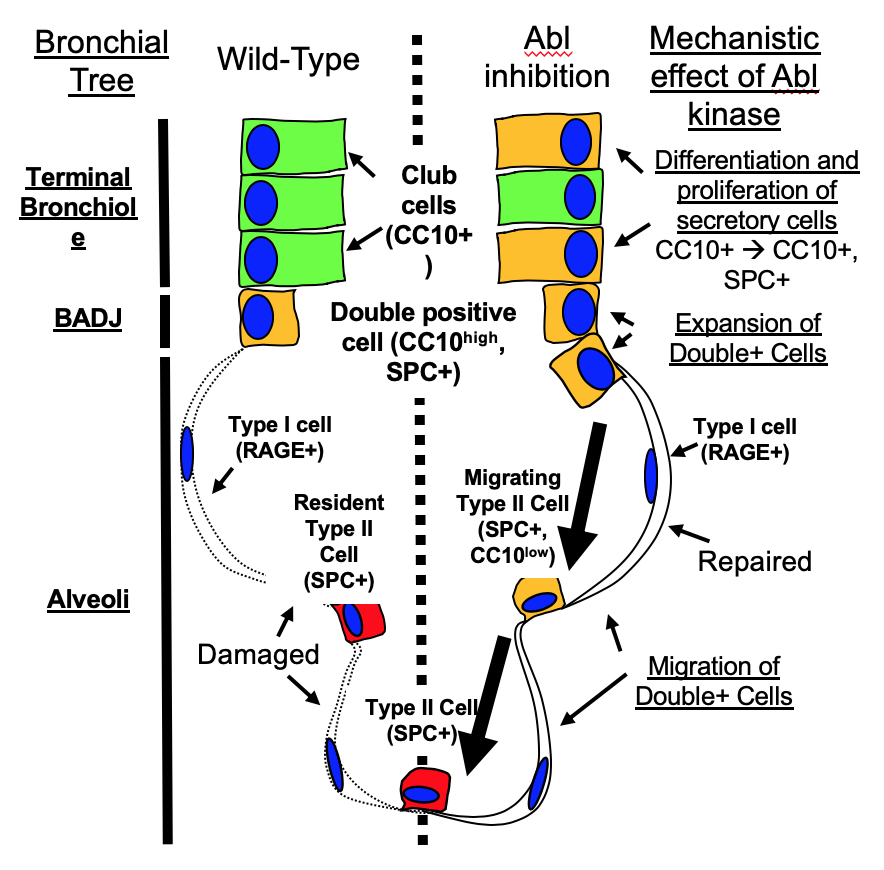Damage to the lung epithelium by respiratory infections is associated with respiratory failure and may result in the induction of acute respiratory distress syndrome which has an incidence of about 200,000 cases in the United States each year and a mortality rate of 25-40%. We found that loss of Abl1 specifically in CC10 (also known as SCGB1A1)-expressing lung epithelial cells leads to a significant increase in the differentiation of bronchiolar epithelial cells, resulting in dramatic expansion of a CC10+ airway cell population that co-expresses SPC, a marker for Type II alveolar cells, that promotes alveolar regeneration following bacterial pneumonia. Furthermore, treatment with an ABL-specific allosteric inhibitor, or with an ABL ATP-competitive inhibitor enhanced regeneration of the alveolar epithelium and accelerated recovery of mice following pneumonia infection (Figure diagram). These findings were published in PNAS (Khatri, et al 2019; Proc. Natl. Acad. Sci. USA 116: 1603-1612).
Abl1-deficient Scgb1a1+ SPC+ cells expand to sites of lung injury and
promote regeneration

